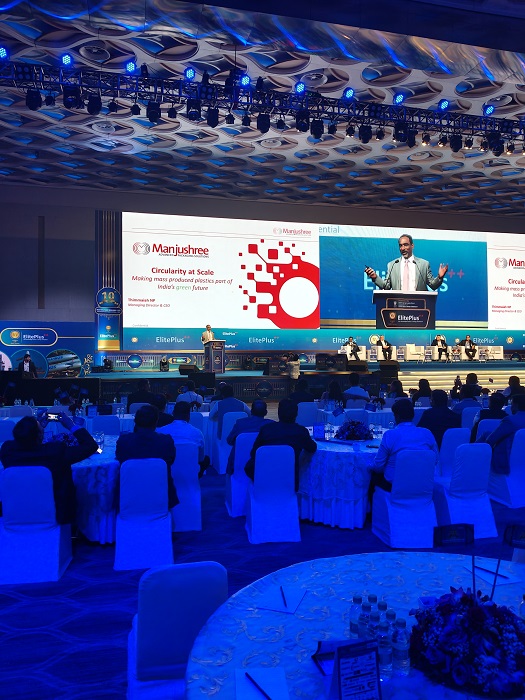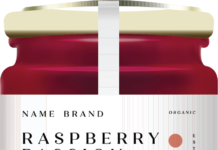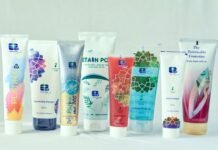
Thimmaiah NP, managing director and CEO of Manjushree Technopack, has urged the rigid plastic packaging industry to go beyond surface-level commitments and embrace the complexity, cost and scale involved in adopting post-consumer recycled (PCR) plastic. His address at the 10th Injection, Blow Moulding & PET International Business Summit 2025 in Mumbai centered on the theme “circularity at scale.”
Introducing Manjushree Technopack as India’s largest rigid plastic packaging producer, Thimmaiah noted that the company manufactures approximately 250,000 tons of rigid plastic packaging annually. With 28 manufacturing units across the country and a turnover of Rs 4,000 crore, Manjushree serves multiple industry segments with an array of technologies and subgrades. Recently, the company underwent a change in ownership from one private equity firm to another.
Thimmaiah acknowledged that circularity and sustainability are now firmly embedded in industry discourse, but argued that their successful implementation depends on scale — and that scale is now being pushed by policy. India’s regulatory ambition to increase PCR content from 30% to 60% by FY29 is driving this transformation. “We have talked about circularity for years, but it’s now becoming a real mandate, not just an option,” he said.
The paradigm shift, he explained, demands full engagement from all stakeholders — from policymakers and brands to recyclers, converters, and consumers. “Everyone has a role — it’s about design, use, disposal, collection and reprocessing,” he said, adding that without cohesive action, progress would stall.
Thimmaiah debunked what he termed as myths around the recyclability of PET. He cited studies to claim that PET can be recycled indefinitely without significant loss in performance. “Even after 11 cycles, PET can be used for food-grade applications,” he stated, positioning PET as a substrate with long-term potential in circular packaging systems.
However, he cautioned that achieving circularity in India won’t be easy. With per capita plastic consumption at 11 kg — compared to the global average of 160 kg — the country is still on a steep growth curve. As volumes rise, so too will the need for recycled content. To meet the 60% PCR mandate, India would need 10 million metric tons of recycled plastic.
The transition, Thimmaiah stressed, will not be simple. “Adopting PCR in manufacturing is going to be extremely complex,” he said. Challenges include contamination, color variation, approval delays, equipment wear and tear, increased storage needs, and significantly higher costs. “The quality we get from blending PCR with virgin isn’t guaranteed. It’s not plug-and-play.”
He noted that each stakeholder — recyclers, machine manufacturers, virgin resin suppliers and brands — tends to shift responsibility, complicating the problem-solving process. “Recyclers say their PCR is perfect. Machine makers say their equipment needs no change. Brands dictate where PCR is sourced from and what the price will be. But the real pressure falls on converters like us.”
Manjushree, he said, has spent the last three years preparing for this shift through a structured eight-step process to understand customer needs and deliver PCR-integrated solutions. The company has invested in in-house recycling facilities and is actively pursuing lightweighting and ESG-compliant strategies. “We are the global number one in ESG-compliant rigid plastic packaging according to S&P Global,” he stated.
But even for a market leader, the industry’s fragmentation poses challenges. Manjushree, despite being India’s largest rigid packaging player, holds less than 7% market share. “That tells you how fragmented the industry is. Without scale, you can’t fund meaningful R&D. And without R&D, circularity at scale remains a slogan.”
The way forward, he asserted, lies in offering integrated, one-stop solutions to brands — not just competitive prices. “We need to move from price to value. Brands shouldn’t have to worry about where the PCR comes from or how the process works. We have to deliver the finished product, meeting quality and sustainability expectations.”










